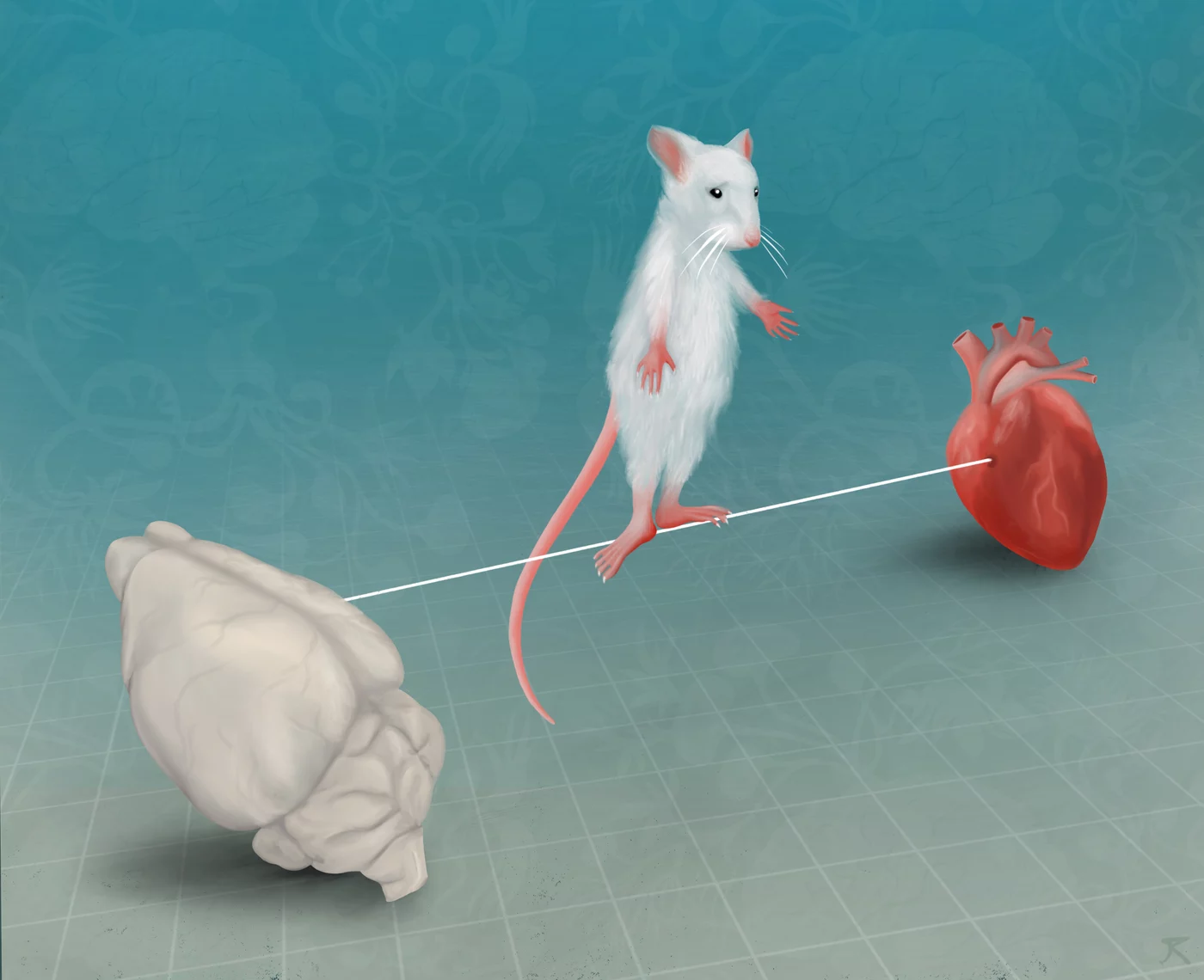Balancing fear

Fear is essential for survival, but must be well regulated to avoid harmful behaviors such as panic attacks or exaggerated risk taking. Scientists at the Max Planck Institute of Neurobiology have now demonstrated in mice that the brain relies on the body’s feedback to regulate fear. The brain’s insular cortex strongly reacts to stimuli signaling danger. However, when the body freezes in response to fear, the heartbeat slows down leading to attenuated insular cortex activity. Processing these opposing signals helps the insular cortex to keep fear in balance. The body’s reactions are thus actively used to regulate emotions and are much more than passive emotional responses.
We usually experience fear as extremely unpleasant. Nevertheless, this emotion has a crucial function: it prevents us from engaging in too risky behaviors. However, this only works if fear is kept within a healthy range. Too intense fear can severely impair our daily lives, as in the case of anxiety disorders or panic attacks. So how can fear be kept in balance? It seems obvious that bodily signals may play a crucial role, as fear causes noticeable changes in our bodies: the heart beats faster or breathing becomes shallower. However, how exactly the brain processes this information to ultimately regulate emotions like fear is still largely unknown.
